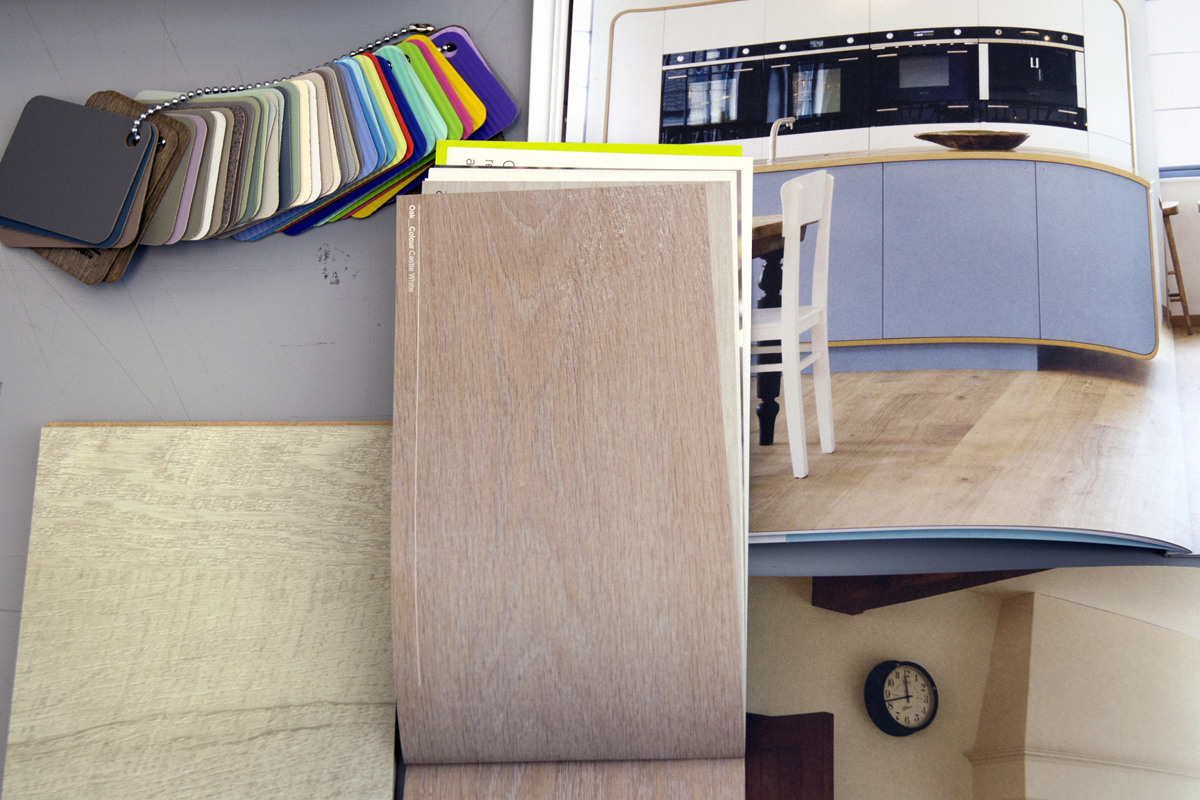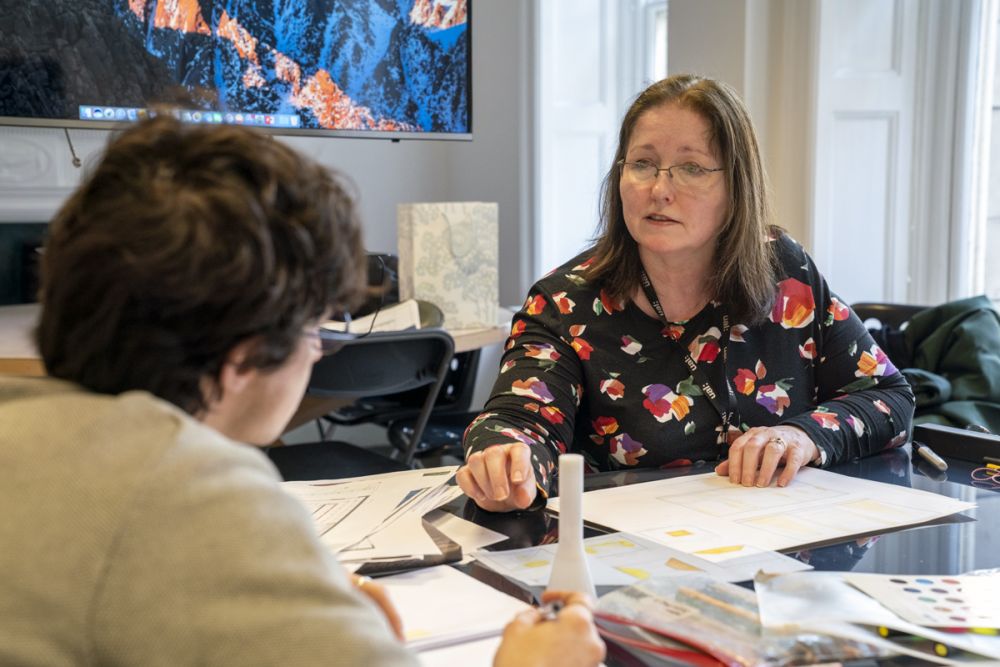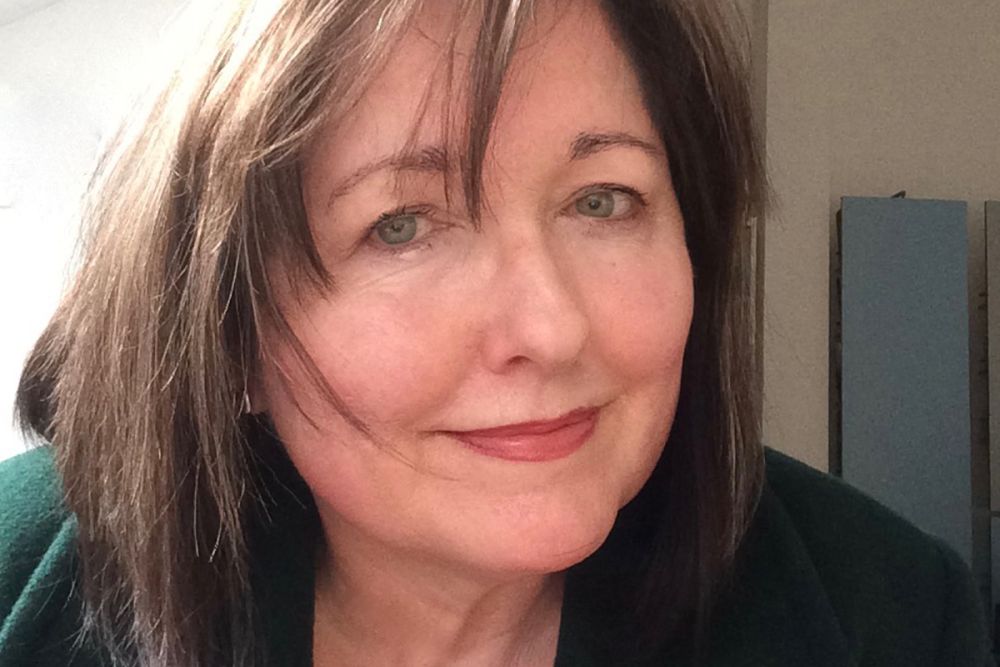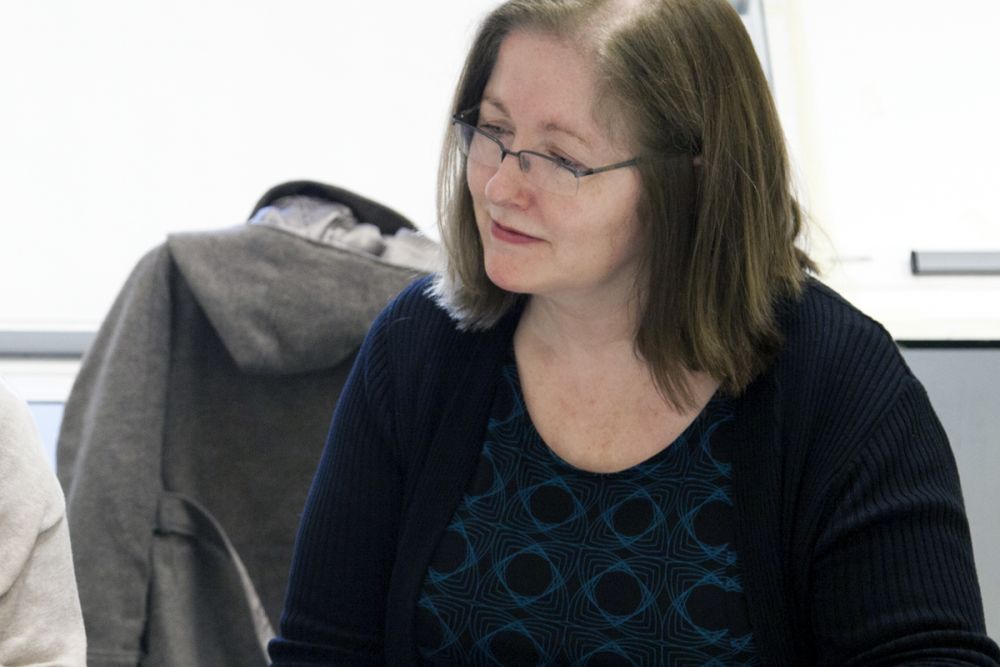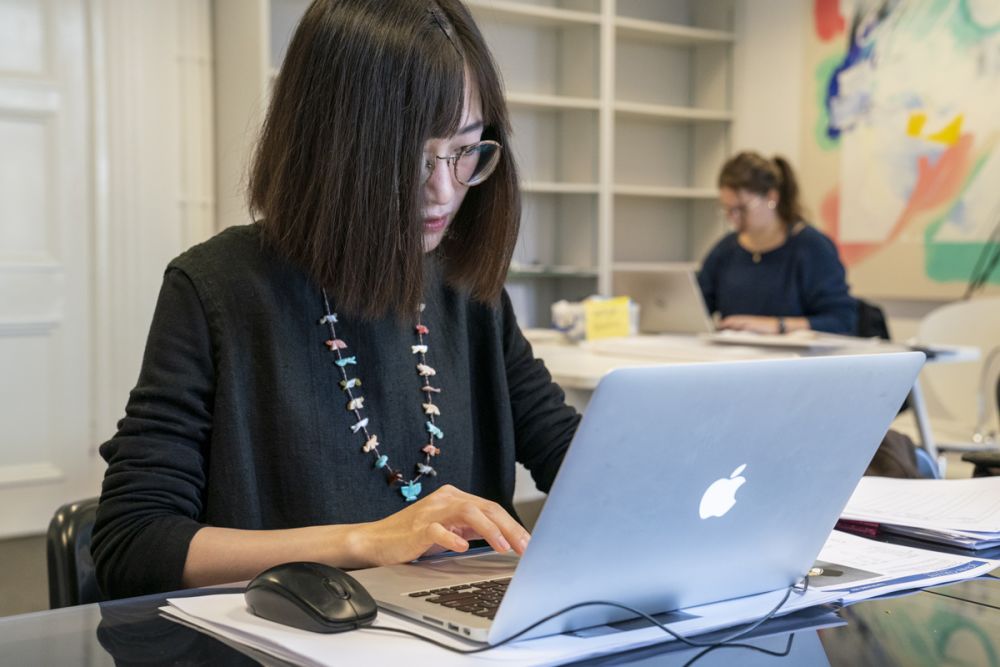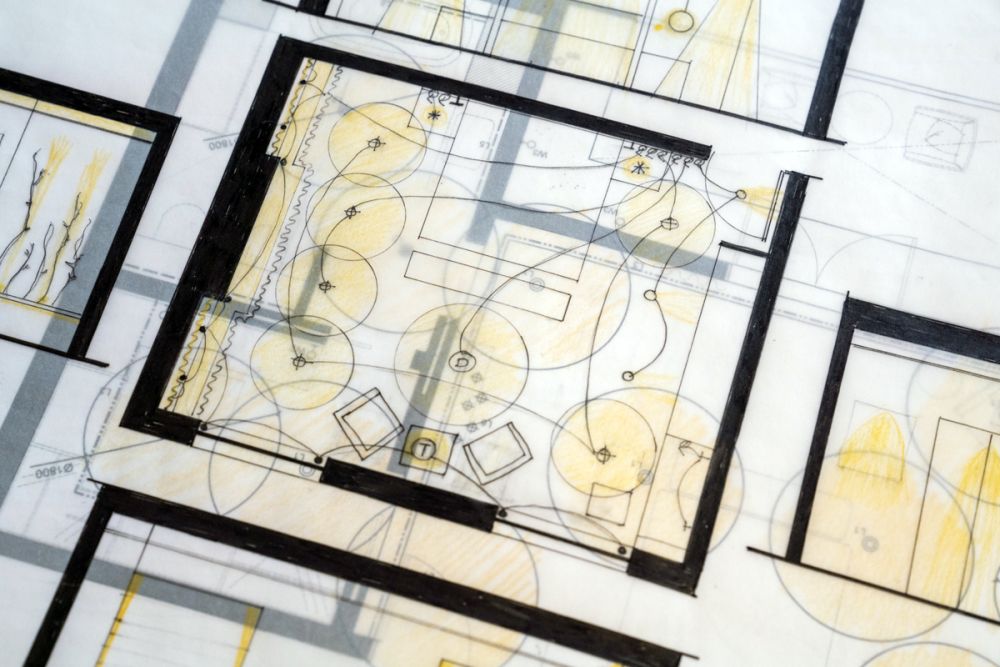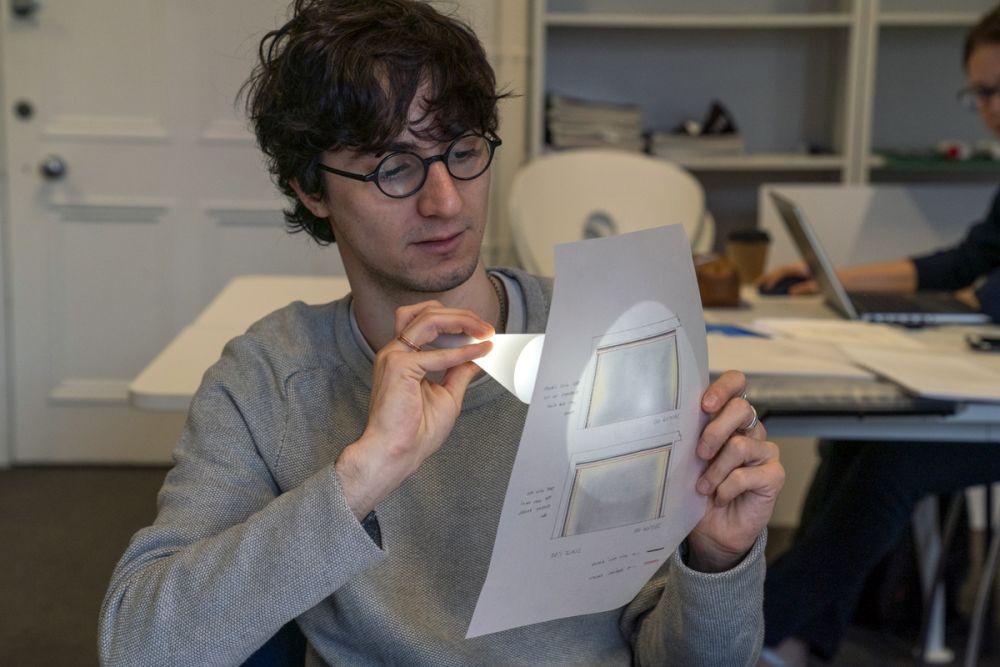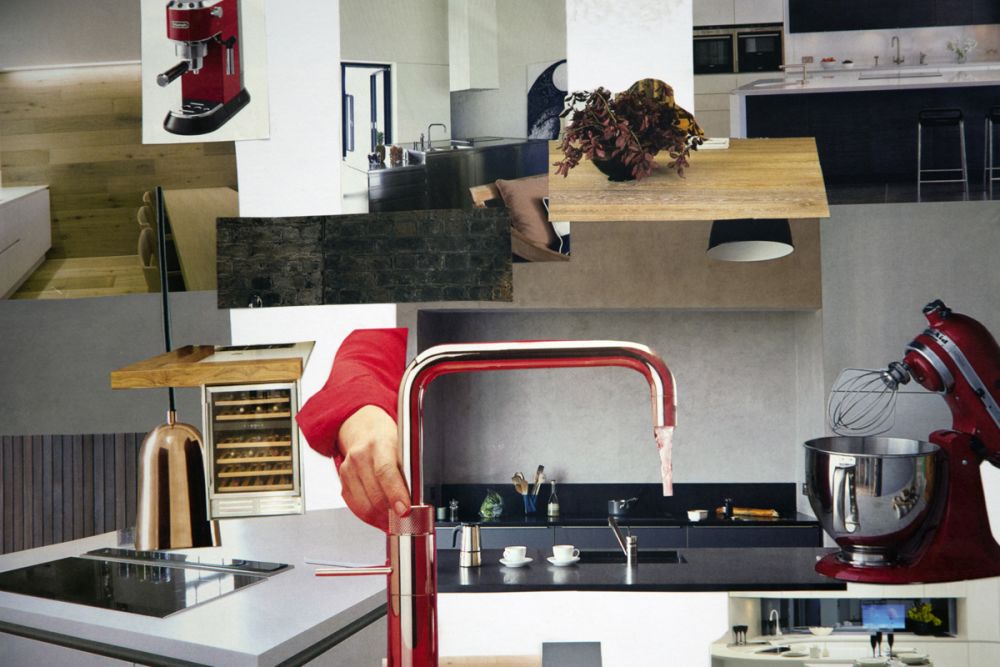We chatted with short course tutor Debbie Blandford about a range of topics, we chatted about the importance of lighting design, the future of interior design and asked Debbie what her top tips for students are.
Debbie teaches Kitchen and Bathroom Planning and Design Online Short Course, Interior Lighting Design Online Short Course and Interior Lighting Design Online Short Course
Debbie Blandford
Getting to know Debbie
Debbie began her education studying 3D Design at Middlesex University, followed by Furniture Design Masters at the Royal College of Arts. Upon leaving university, Debbie found work designing bespoke furniture for both residential and commercial projects in an Interior Design firm. 'It was very obvious from the very beginning that I was much more interested in environmental furniture and that it fits it in with a specific place so it had a meaning to it rather than a piece of furniture that will be sold in the shop.'
As she gained experience in this field, she realised her design skills, were highly transferable. Gradually, she became involved in designing interiors at the firm too; 'I got really interested in interior design, and I think that's because I'm really interested in how people live their lives and that's something that you really need to be interested in is how people live.'
Since then Debbie hasn't looked back, working as a design consultant for architectural practices, designing furniture, interiors, and lighting schemes as well as working one-on-one with individual clients. Working collaboratively and internationally has resulted in a varied portfolio of projects - including hotels, bars and restaurants, aviation design, exhibitions, and high-end residential interiors.
Debbie is also an experienced teacher having taught part-time alongside her Interior Design career for many years. As well as teaching in universities and design institutions, such as Syracuse University and UAL, she has delivered specialist courses for corporate clients including British Airways, The Foreign Office and the Victoria and Albert Museum.
About lighting design
One of Debbie's specialisms is interior lighting design, she describes the importance of good interior lighting for homes as an integral element in any interior design scheme, explaining; 'it's a bit like the light is being a film director, you're guiding people to where they're going to look.'
When teaching, she observed; 'if you do an architecture course or an interior design course, you might get a couple of days of lighting if you're lucky' and this inspired her to develop the short course Interior Lighting Design Online Short Course. 'Lighting is quite a big subject, and the lighting has to be sorted out on a project at the very, very, very beginning.'
When approaching a project, Debbie says; 'First thing I think about is the natural light. So, I'll come in, and I'll turn the lights off and see how much natural light is in the room. Then you want to try and get as much in as possible.'
How much lighting is required is 'a personal preference.' She explains that often people are worried and 'put in, probably 40% more light than they need.'
'Actually, it depends on what's happening in that room. So, you might need more light in the bathroom in the morning but not so much in there in the evening. You need more lighting in the kitchen because it's more of a task lighting. However, what happens in your living room? What are you going to be doing there?
'What you need to do is introduce flexibility. I work in layers, so two different layers of light, on different circuits. So, then you get the best of everything. To get an even light in this space, that's quite easy to do. It's the accent lighting that is giving the atmosphere, shadows, and drama.'
Debbie's courses in action
The future of interior design
Debbie begins by telling us 'The future of interior design is really about the future of society because it's how people are living that changes into design.'
Typically, homes are becoming smaller; however, she explains that clients desire increasingly light and spacious interiors. Something she can accomplish thanks to digitisation and people owning less physical possessions. 'People want experiences over things now. So that affects lots of people's interiors.', she cites an increased trend for global travel, Instagram and technology for driving the changes in the way we live.
Debbie adds 'Sustainability, is also a big issue now.' while it's been a consideration within interior design for some time, she is aware of its growing importance and notices younger clients have a 'real appreciation for these things.'
Concerning lighting, Debbie says 'Interior lighting design is moving towards circadian lighting, which is more akin to the way the sun is. So, you have different lighting in the morning and the evening. Lighting can change the whole space, and you'll be, you'll be in control of that on your phone.'
Looking to the future Debbie considers further changes to the industry; 'the big things that are going to affect the industry are things like smart homes, which will be massive.' Debbie also expects 3D printing technology will allow people to design their own furniture, and eventually components to build a house itself.
Another change will be the use of Virtual Reality in the design process, Debbie comments; 'you put the glasses on, and you're in the kitchen, and you can go through a drawer and open it up. If you don't like that, they'll just change it on the computer, and it would just change in front of you. It's really amazing.'
Top tips from Debbie
We asked Debbie if she felt Interior Designers required an interior design qualification in the subject, such as a degree. She explained this varied from person to person, but students who already graduated with a different degree, often make the transition successfully by taking a series of short courses; 'We get a lot of people on the modules who are changing career, so, and they're like lawyers and doctors and heads of industry. You know, they've got this massive bank of stuff that they know about, a useful, transferable skill set. I think if you have those transferable skills, you can quite easily do short courses and come into the industry. They've often bought a home, they've done it up, so they understand a bit about research and how to put things together.'
